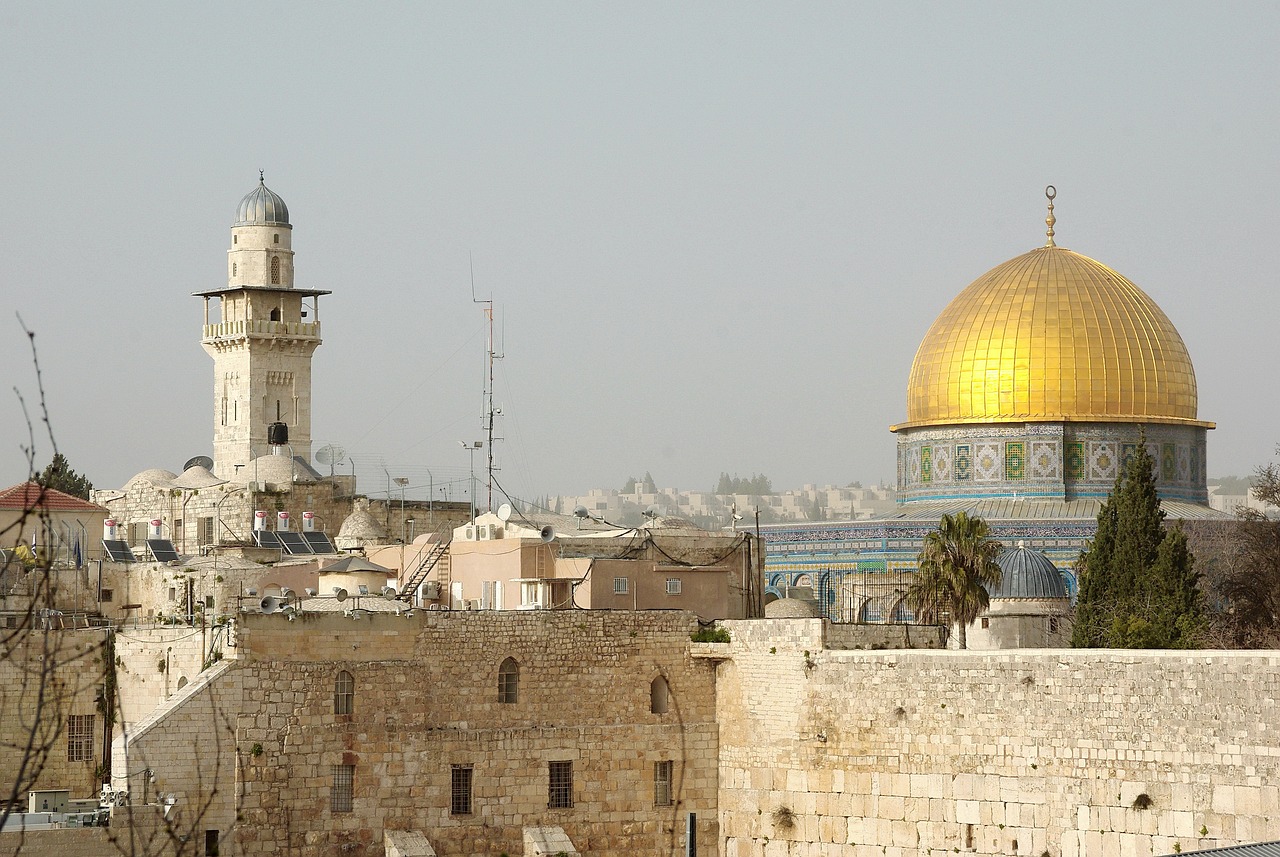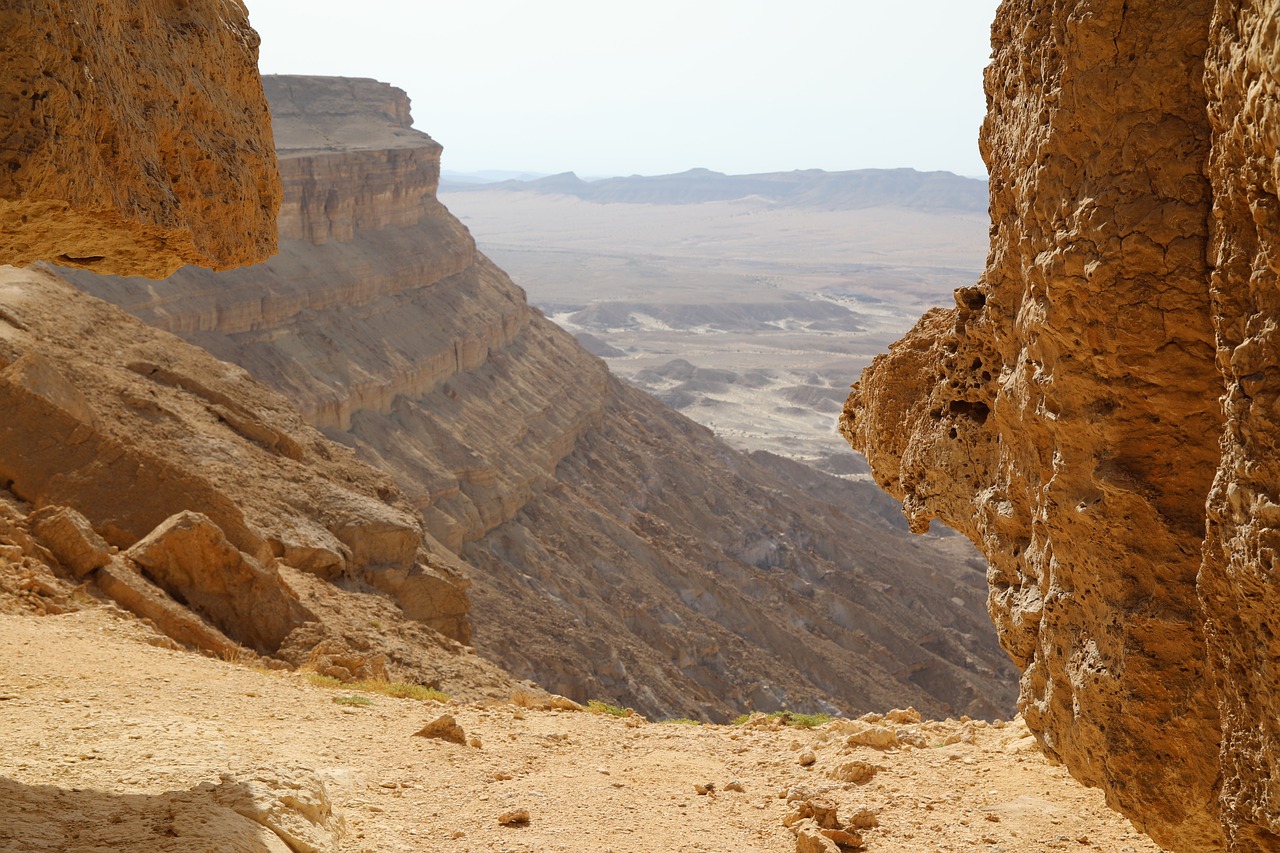Israel Video
Packing Essentials: Preparing for Half a Year in Israel
Israel is a diverse and vibrant country that offers a rich cultural experience. If you’re planning to spend half a year in Israel, it’s important to pack wisely to ensure a comfortable and enjoyable stay. This article will guide you through the essential items you should include in your packing list. From clothing to electronics and travel essentials, we’ve got you covered.
Section 1: Clothing
When packing for a six-month stay in Israel, it’s crucial to consider the local climate and cultural norms. Israel has a Mediterranean climate, with hot and dry summers and mild winters. Here are the clothing essentials you should pack:
- Lightweight and breathable clothes: Pack lightweight and breathable clothing items such as cotton t-shirts, shorts, skirts, and dresses to stay comfortable in the hot summer months.
- Modest clothing: Israel is a culturally diverse country with varying religious practices. It’s important to respect local customs by packing modest clothing options, including long-sleeved shirts, pants, and maxi dresses.
- Swimwear: Israel has beautiful beaches along its coastline, so don’t forget to pack swimwear for enjoying the sun and sea.
- Comfortable walking shoes: Israel offers numerous historical sites and stunning landscapes to explore. Make sure to pack comfortable walking shoes or sneakers for your adventures.
- Light jacket or sweater: While the summers in Israel are hot, the evenings can get cooler. Pack a light jacket or sweater for the occasional chilly night.
Section 2: Electronics
In today’s digital age, electronics play a crucial role in our daily lives. Here are the essential electronics you should consider packing for your half-year stay in Israel:
- Laptop or tablet: If you need to work or stay connected during your stay, a laptop or tablet is essential. Make sure to bring the necessary adapters to charge your devices.
- Smartphone: A smartphone is a must-have for communication, navigation, and capturing your memories in Israel.
- Camera: Israel is a visually stunning country, so don’t forget to pack a camera to capture the breathtaking landscapes and historical sites.
- Universal power adapter: Israel uses Type H power outlets, so make sure to bring a universal power adapter to charge your devices.
Section 3: Travel Essentials
Traveling to Israel for an extended period requires careful planning and packing. Here are the essential travel items you should include in your luggage:
- Valid passport and visa: Ensure that your passport is valid for at least six months beyond your planned departure date. Check the visa requirements for your country of residence before traveling to Israel.
- Travel insurance: It’s important to have travel insurance that covers medical emergencies, trip cancellation, and baggage loss or theft.
- Money and banking: Carry some cash in Israeli Shekels for immediate expenses upon arrival. Consider notifying your bank about your travel plans to avoid any issues with your cards.
- Prescription medications: If you require prescription medications, make sure to pack an ample supply for your entire stay. It’s also advisable to carry a copy of your prescriptions.
- Travel-sized toiletries: To save space in your luggage, pack travel-sized toiletries such as shampoo, conditioner, toothpaste, and sunscreen.
- First aid kit: It’s always a good idea to have a basic first aid kit with essentials like band-aids, pain relievers, and any necessary medications.
Israel Image 1:

Section 4: Accommodation
Finding suitable accommodation for your half-year stay in Israel is crucial for a comfortable experience. Consider the following options:
- Apartment rental: Renting an apartment can provide you with a home away from home. Websites like Airbnb and Booking.com offer a variety of options to suit different budgets.
- Hostels and guesthouses: If you’re on a tight budget or prefer a more social atmosphere, consider staying in hostels or guesthouses. These options are great for meeting fellow travelers.
- Long-term rentals: If you’re planning to stay in one location for the entire six months, consider looking for long-term rental options. This can often be more cost-effective compared to short-term stays.
Section 5: Transportation
Getting around in Israel is relatively easy, thanks to its well-connected transportation system. Here are the transportation options you should consider:
- Taxi services: Taxis are readily available in major cities and can be a convenient way to travel short distances.
- Rideshare apps: Popular rideshare apps like Uber and Gett operate in Israel, offering a convenient and affordable mode of transportation.
- Public transportation: Israel has an extensive public transportation network, including buses and trains. Consider getting a rechargeable public transportation card for easy access.
- Renting a car: If you plan to explore beyond the major cities, renting a car gives you the freedom to travel at your own pace. Just make sure to familiarize yourself with local driving regulations.
Section 6: Local Cuisine
Exploring the local cuisine is an essential part of any travel experience. Israel offers a diverse culinary scene influenced by various cultures. Here are some must-try dishes:
- Hummus: Israel is famous for its delicious hummus, a creamy dip made from chickpeas, tahini, and olive oil. Enjoy it with fresh pita bread.
- Falafel: These deep-fried balls made from ground chickpeas or fava beans are a popular street food in Israel. They are usually served in pita bread with various toppings.
- Shakshuka: This hearty dish consists of eggs poached in a flavorful tomato and bell pepper sauce. It’s often enjoyed for breakfast or brunch.
- Shawarma: Shawarma is a Middle Eastern favorite made from thinly sliced meat (usually chicken or lamb) cooked on a vertical rotisserie. It’s typically served in pita bread with tahini sauce and veggies.
- Sabich: Sabich is a popular Israeli sandwich consisting of fried eggplant, hard-boiled eggs, Israeli salad, tahini sauce, and amba (pickled mango sauce) stuffed in pita bread.
Israel Image 2:

Section 7: Cultural Etiquette
Respecting local customs and cultural etiquette is important when visiting Israel. Here are a few key points to keep in mind:
- Dress modestly: As mentioned earlier, Israel is a culturally diverse country. When visiting religious sites or conservative neighborhoods, dress modestly out of respect.
- Shabbat observance: Shabbat, the Jewish day of rest, begins on Friday evening and lasts until Saturday evening. Respect the observance by refraining from using public transportation or engaging in activities that may disrupt the peaceful atmosphere.
- Kosher food: If you’re dining at kosher restaurants or attending events where food is served, be mindful of dietary restrictions and guidelines.
- Respect religious sites: When visiting religious sites, follow any rules or guidelines provided, such as covering your head or shoulders and refraining from taking photos in certain areas.
Section 8: Health and Safety
Taking care of your health and ensuring your safety is essential during your stay in Israel. Here are some health and safety tips:
- Stay hydrated: Israel’s hot climate can lead to dehydration. Drink plenty of water and carry a reusable water bottle with you.
- Sun protection: Protect yourself from the strong sun by wearing sunscreen, sunglasses, and a hat.
- Stay updated on current events: Keep yourself informed about any local or regional developments that may affect your safety.
- Emergency numbers: Save important phone numbers, including the local emergency services and your embassy or consulate.
Section 9: Language
Hebrew and Arabic are the official languages of Israel. While many locals speak English, it’s always helpful to learn a few basic Hebrew phrases to enhance your experience. Here are some useful phrases:
- Shalom: Hello/goodbye.
- Toda: Thank you.
- Boker tov: Good morning.
- Eifo…: Where is…
- Mashehu bevakasha: Something please.
Israel Image 3:

Section 10: Banking and Currency
Israel’s currency is the Israeli Shekel (ILS). Here are a few things to know about banking and currency exchange:
- ATMs: ATMs are widely available in Israel, and most accept international cards. Check with your bank regarding any fees or restrictions.
- Currency exchange: Currency exchange offices can be found in major cities and tourist areas. Compare rates and fees before making an exchange.
- Credit cards: Credit cards are widely accepted in hotels, restaurants, and shops. However, it’s always a good idea to carry some cash for smaller establishments or markets.
Section 11: Must-Visit Places
Israel offers a wealth of historical, cultural, and natural attractions. Here are some must-visit places during your stay:
- Jerusalem: Explore the Old City, visit the Western Wall, and experience the vibrant atmosphere of the Machane Yehuda Market.
- Tel Aviv: Enjoy the beautiful beaches, vibrant nightlife, and visit the bustling Carmel Market.
- Masada: Take a trip to the ancient fortress of Masada and enjoy breathtaking views of the Dead Sea.
- Dead Sea: Float in the mineral-rich waters of the Dead Sea and indulge in a rejuvenating mud bath.
- Haifa: Explore the beautiful Bahá’í Gardens and enjoy panoramic views of the city.
Section 12: Conclusion
Preparing for a half-year stay in Israel requires careful planning and packing. By considering the clothing, electronics, travel essentials, and cultural aspects mentioned in this article, you’ll be well-prepared for an incredible and fulfilling experience in Israel. Remember to respect local customs, stay safe, and embrace the rich history and diverse culture of this beautiful country.
References
– Airbnb: www.airbnb.com
– Booking.com: www.booking.com
– Israel Ministry of Tourism: tourism.gov.il
– Lonely Planet: www.lonelyplanet.com


